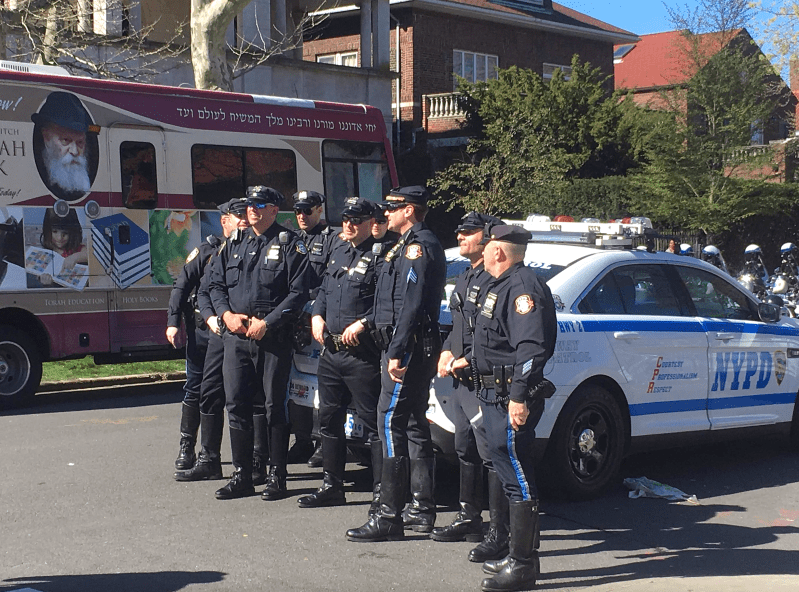OPINION: NYPD Officers Must Live in the City They Serve Rather Than Being an ‘Occupying Force’
State Sen. Kevin Parker makes the case for enacting a residency requirement for cops.

As an African-American, I am acutely aware that people who look like me regularly receive unfair treatment from law enforcement. I have made police accountability a cornerstone of my legislative agenda in my two decades as a state senator. My record includes passing laws creating a state Law Enforcement Misconduct Investigative Office, requiring body cameras for state police, establishing an explicit right to record police, and releasing police disciplinary records.
To paraphrase John Paul Jones, however, I have not yet begun to fight for police reform.

There is one policy I have been calling on for years that would have a clear and proven impact — one that is backed by research and now supported by Mayor Adams: we need an NYPD residency requirement, which the force had until 1962. To this end, I introduced Senate bill S2984, which would reinstate the requirement for all future NYPD officers.
Today, 52 percent of NYPD officers live outside the five boroughs. These officers reside in Rockland, Suffolk, Nassau, and Westchester counties (and other places that, for many city residents, might as well be Mars). This means that the NYPD is effectively an occupying force managing the public safety of New York City. This is a situation we expect for a country that surrenders to a hostile army, not the “Greatest City in the World.”
When employees (in any profession!) do not live where they work, they cannot be truly invested in those communities. Even I cannot imagine that I would be as effective a state senator if I were representing Orange County while still living in Brooklyn. How can someone patrolling with a badge and gun do otherwise?
Not living where you are policing also adds to the lack of relationship or connectedness to communities. If cops are outsiders, that is a recipe for fear and distrust. At the same time, if an NYPD officer’s off-the-clock exposure to the city is sitting in their suburban home and reading sensationalized news reports on crime, they may have a distorted perception of the streets they patrol and feel justified in using heavy-handed tactics.
Research supports the call for a residency requirement. A 2021 Depaul University study found many benefits to the policy: faster response times, better addressing of civilians’ complaints, greater diversity, and stronger police-community relations. Those are all a formula for a police force that does not engage in misconduct.
In January, I proudly received a high-profile endorsement for my residency requirement, when Mayor Adams declared it “a smart idea.” I appreciate the support of my former state Senate colleague, even if we do not always see eye-to-eye on the criminal-justice system. Now, I urge my current Albany colleagues to heed the call.
Law enforcement has lodged the understandable objection that housing is much more expensive within city limits, which can be especially burdensome for officers making the starting salary. But most other civil servants manage to live in the five boroughs, including almost 94 percent of NYPD civilian employees, and any officer wishing to live in the suburbs is free to seek employment there. Further, I will gladly work with my colleagues to create affordable housing options in the city for the NYPD.
Admittedly, there are also objections from supporters of police reform, who are skeptical that a residency requirement will have as much impact as other policies. Fortunately, this legislative session I sponsored another 49 bills on police reform to make up the difference. My other bills include policies such as defining excessive use of force by police as its own crime, repealing qualified immunity, and creating a non-police response to mental-health emergencies.
In a time of rising crime, many are ready to throw in the towel on police reform and defer to the desires of the NYPD. But there is no better time to deliver New Yorkers the professionalized police force they deserve. A residency requirement may not be a cure-all, but it is one tool in the arsenal to ensure that NYPD officers respect the people they are sworn to protect.
Kevin Parker, a Democrat, represents Flatbush, East Flatbush, Flatlands, Midwood, Ditmas Park, Kensington, Windsor Terrace, and Park Slope.





